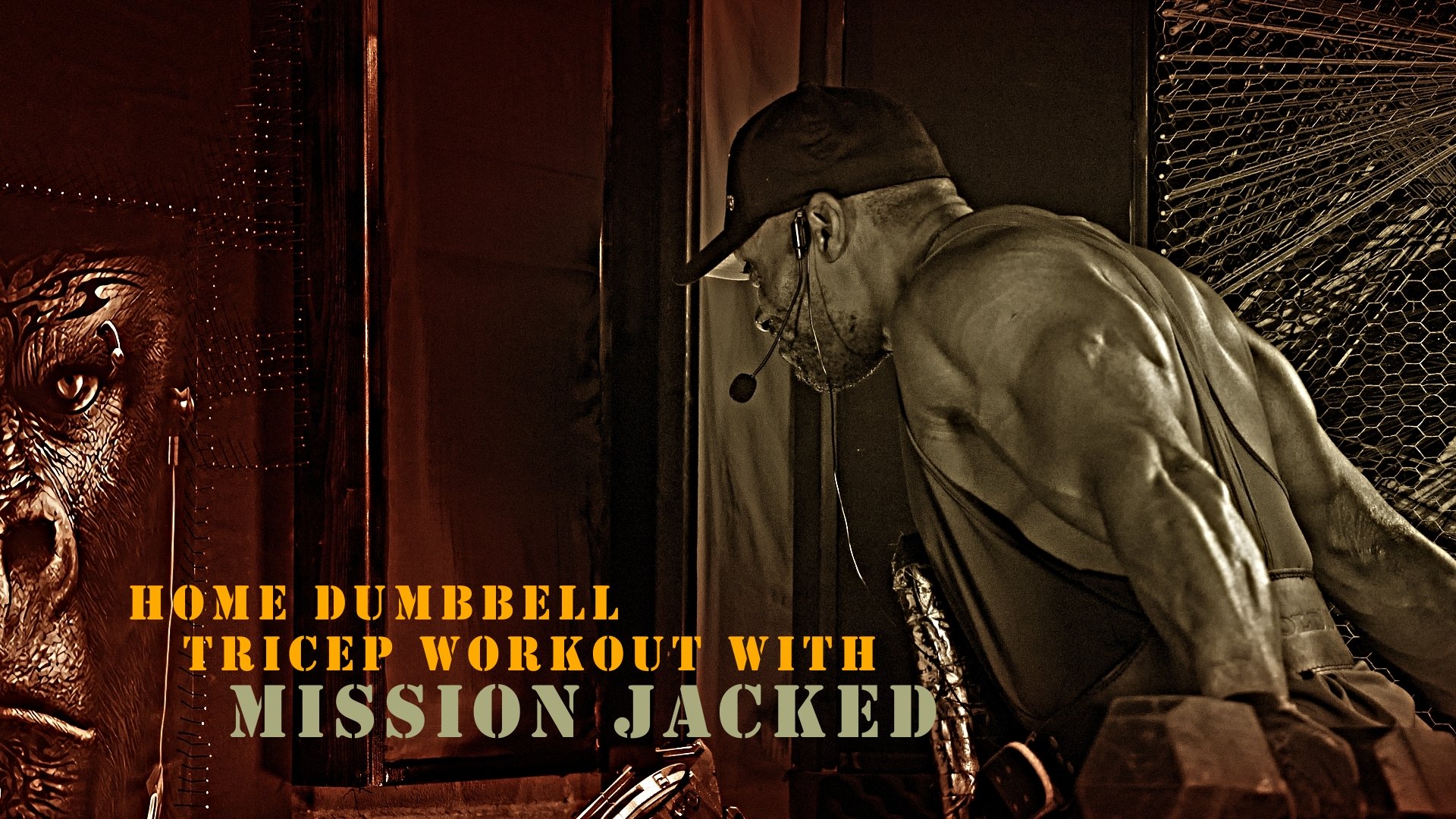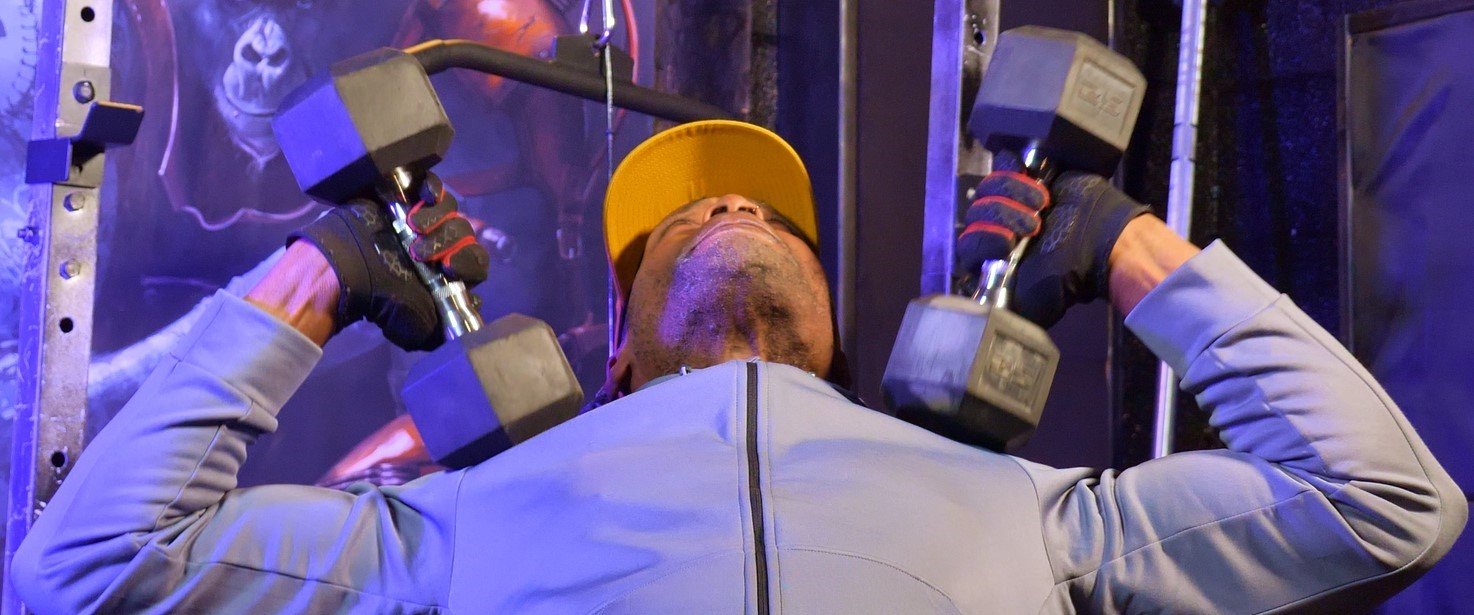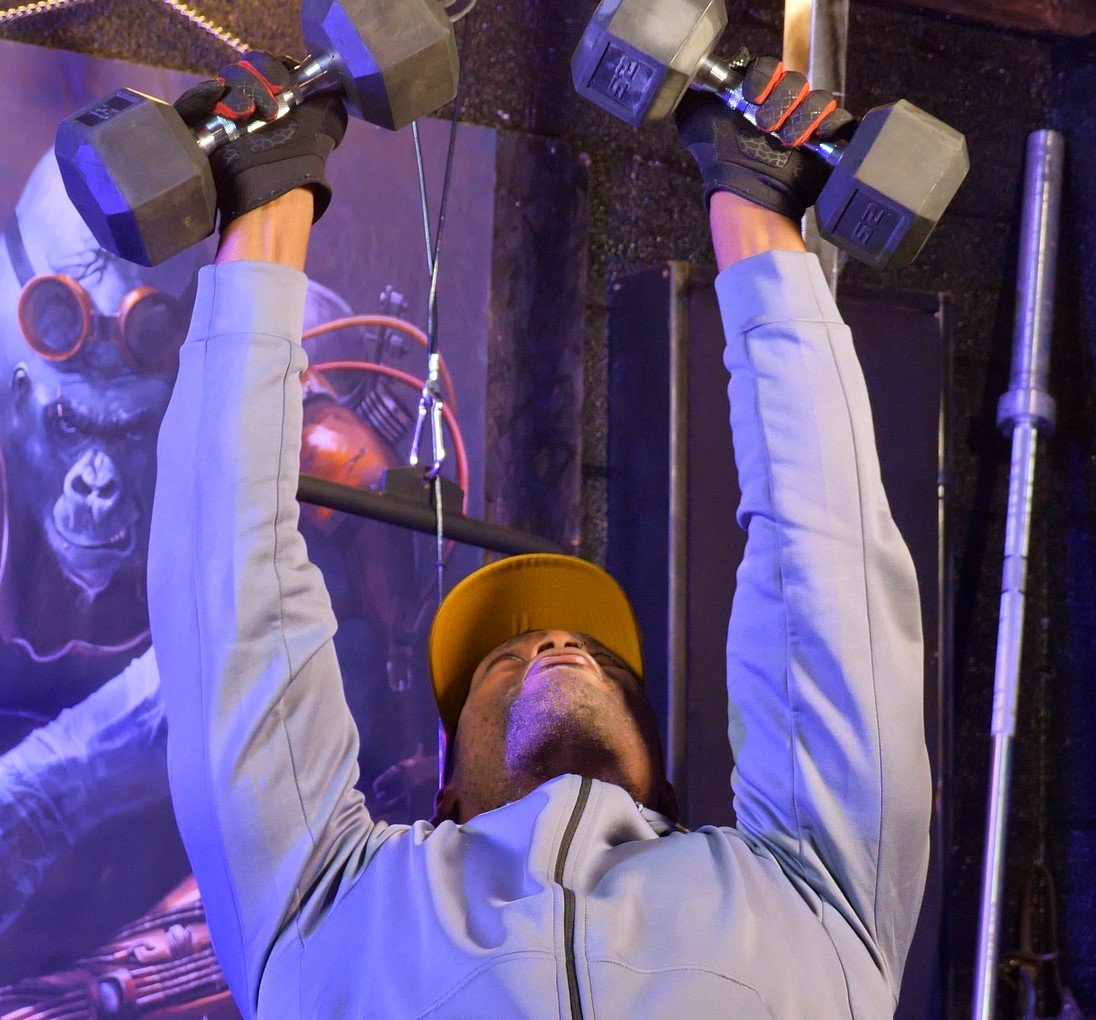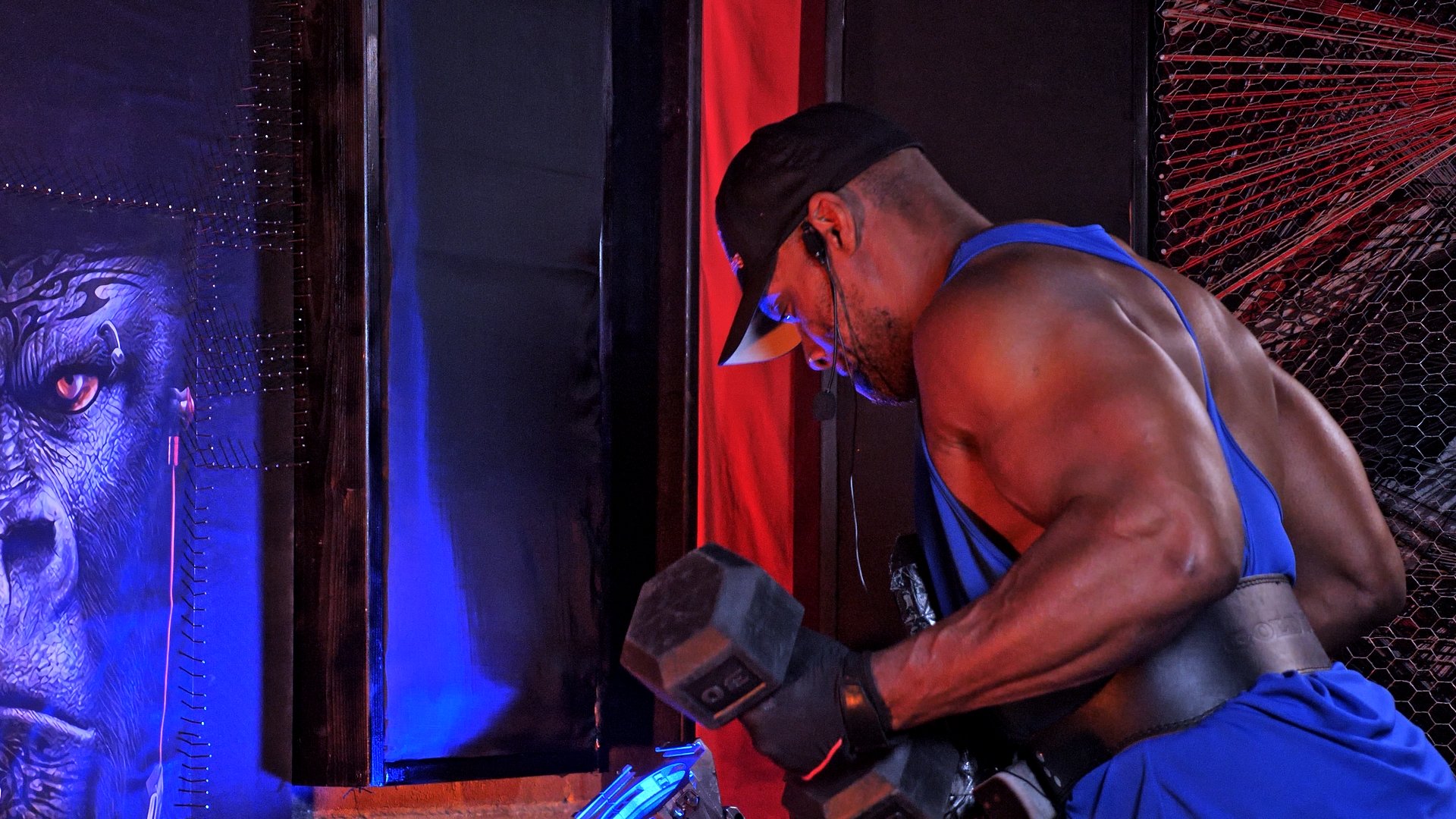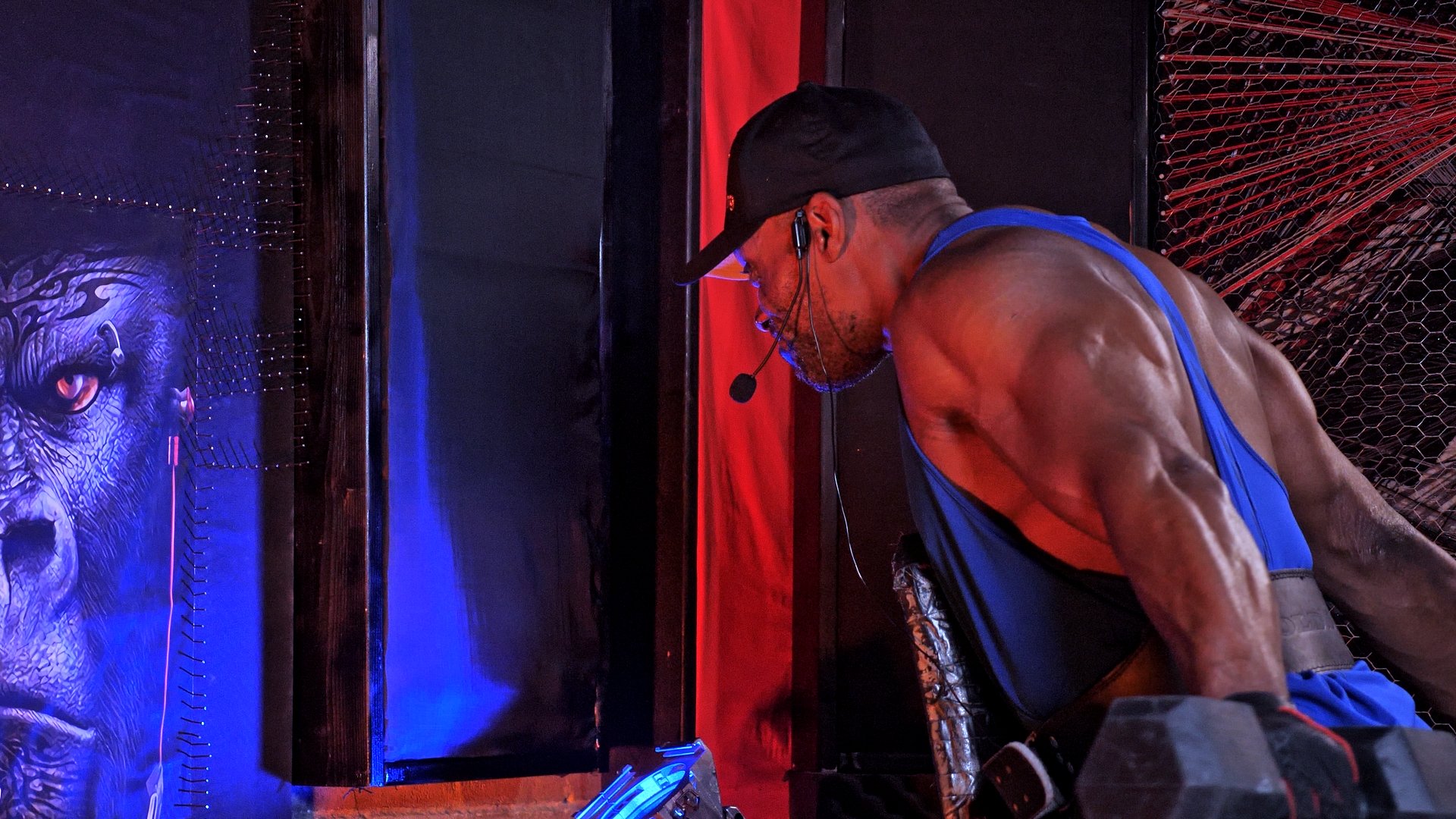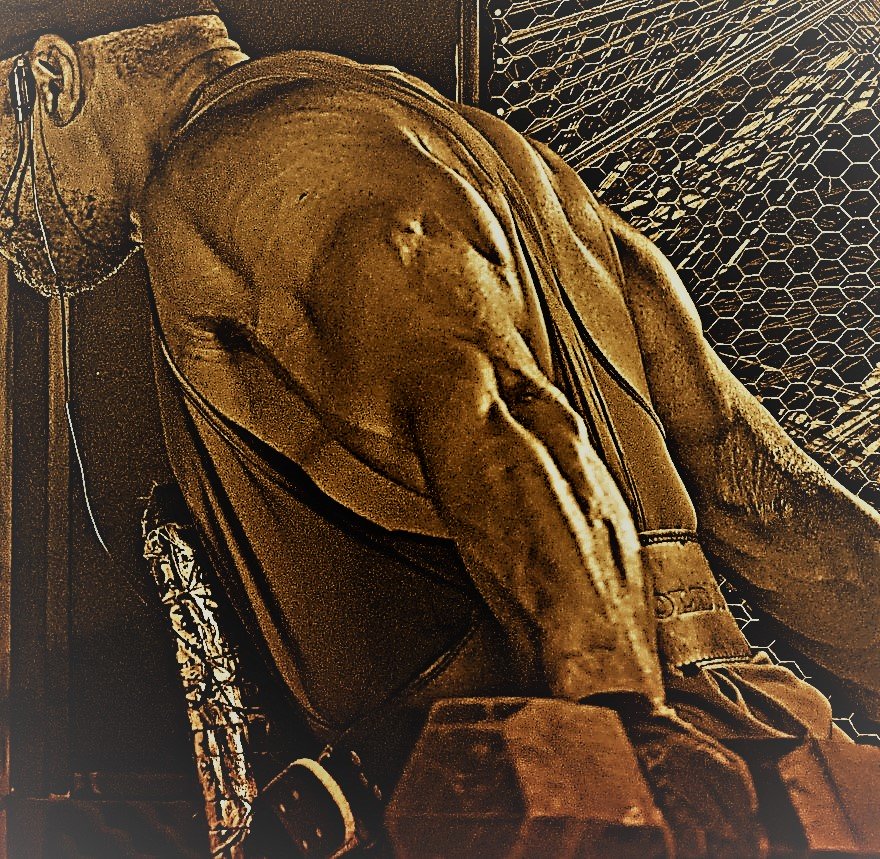Mission Jacked.com
4 Home Dumbbell Tricep Workout Exercises
For More Meat On The Arms
Looking for a home dumbbell Tricep workout that thickens out the arms and gives them that dense meat-hanging look from the side and the rear? Congratulations, you’ve won an on-the-go-read with the best online source for getting jacked at home with dumbbells and minimal equipment; welcome to Mission Jacked.com.
While there isn’t a magic pill to replace the hard work needed to improve your Triceps, there are exercises, training protocols, and intensity techniques you can add to your workouts to stimulate new growth in this area.
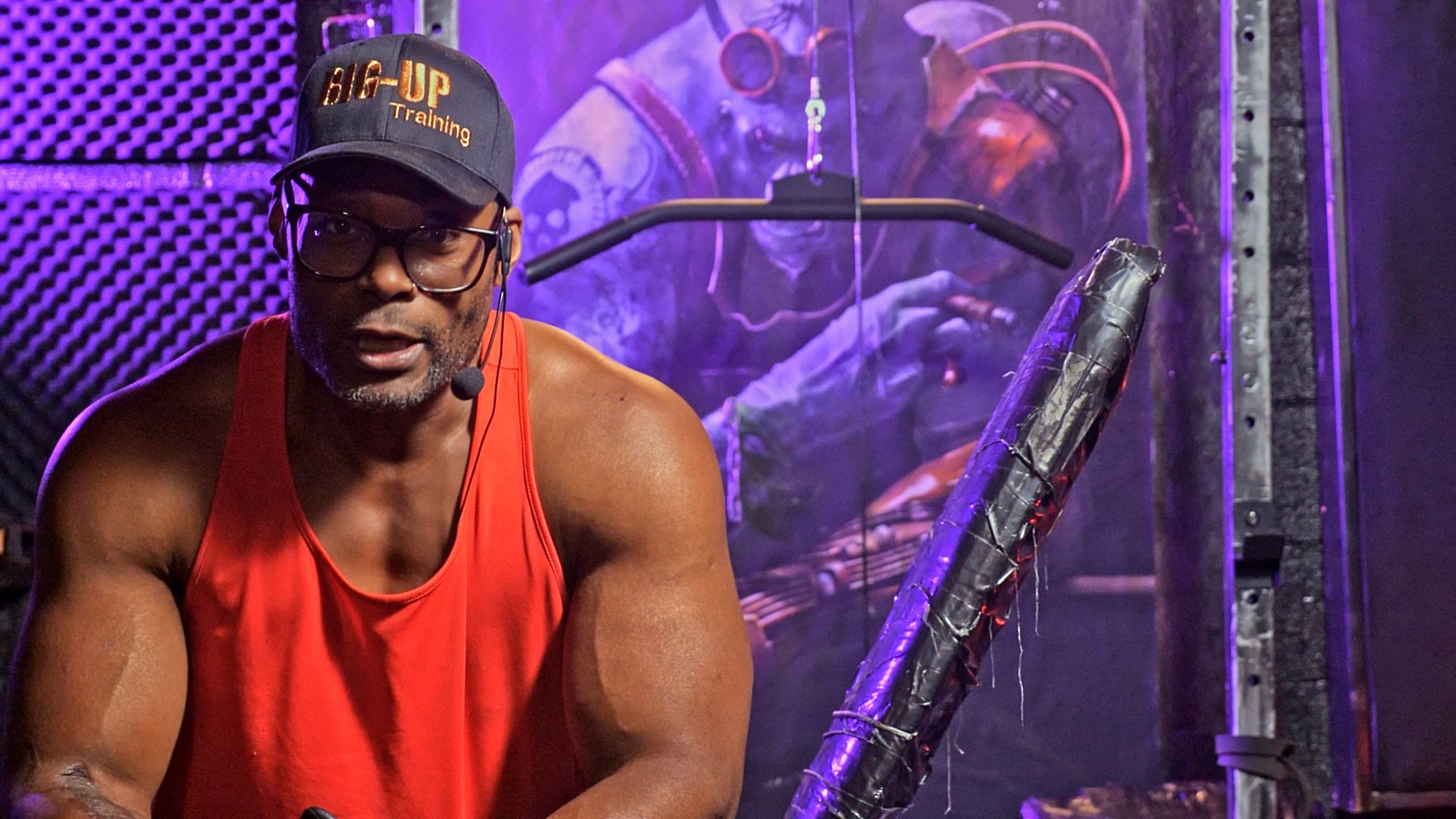 The Man Behind Mission Jacked
The Man Behind Mission JackedI’m Psymon H., your online training partner and the man behind the BIG-UP Home Training System. While in this article we may cover one or two exercises that are familiar to you, we’re also going to travel a little off the beaten track like we did for the home dumbbell Bicep workout to where some real Tricep gems can be found.
To get a great handle on some excellent dumbbell exercises for Triceps, first, we need to have a general understanding of the muscle to help better connect to it.
What are the Triceps? They are the main extensor of the upper limb which means that they bring the arm from a curled up position to a straighter position.
The Triceps consist of three different heads. First, you have the long head situated on the inside of your arm. On the outside of your arm is the Lateral Head. Underneath those two heads is where the Medial Tricep Head is located, and on well-developed arms, this head does pop out closer to the elbow, which allows it to influence the Tricep width.
The mass for all three heads is estimated to make up anywhere from 60-70% of the total arm size, so you can see the importance of having a sound home dumbbell Tricep workout to maximize arm development.
Now we’ve got the basics out of the way, let’s go ahead and build these Triceps.
The 3 Best 25 lb Dumbbells On The Market
Home Dumbbell Tricep
Workout Exercise 1:
Reverse and Twist Dumbbell Skull Crusher
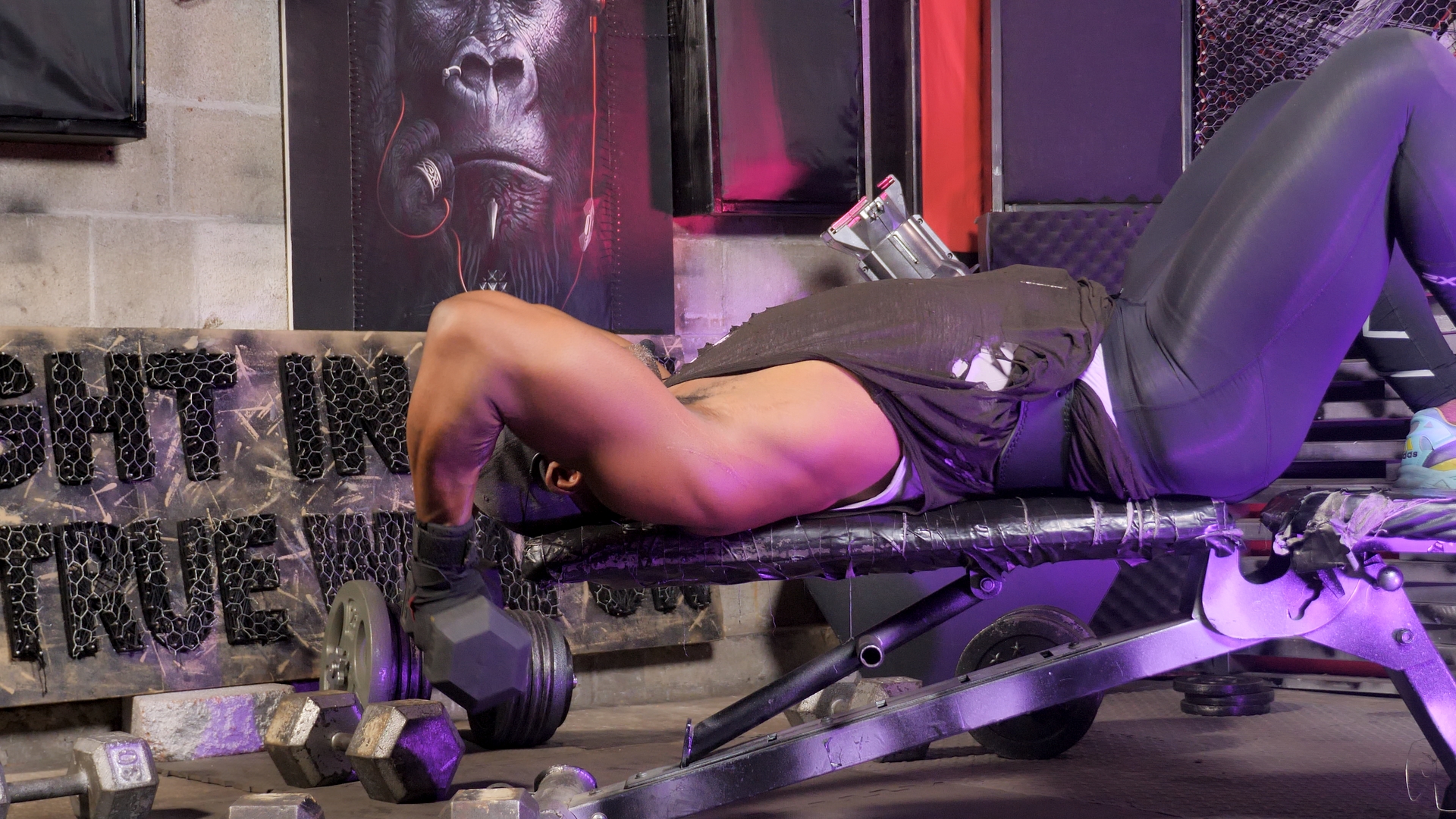 |
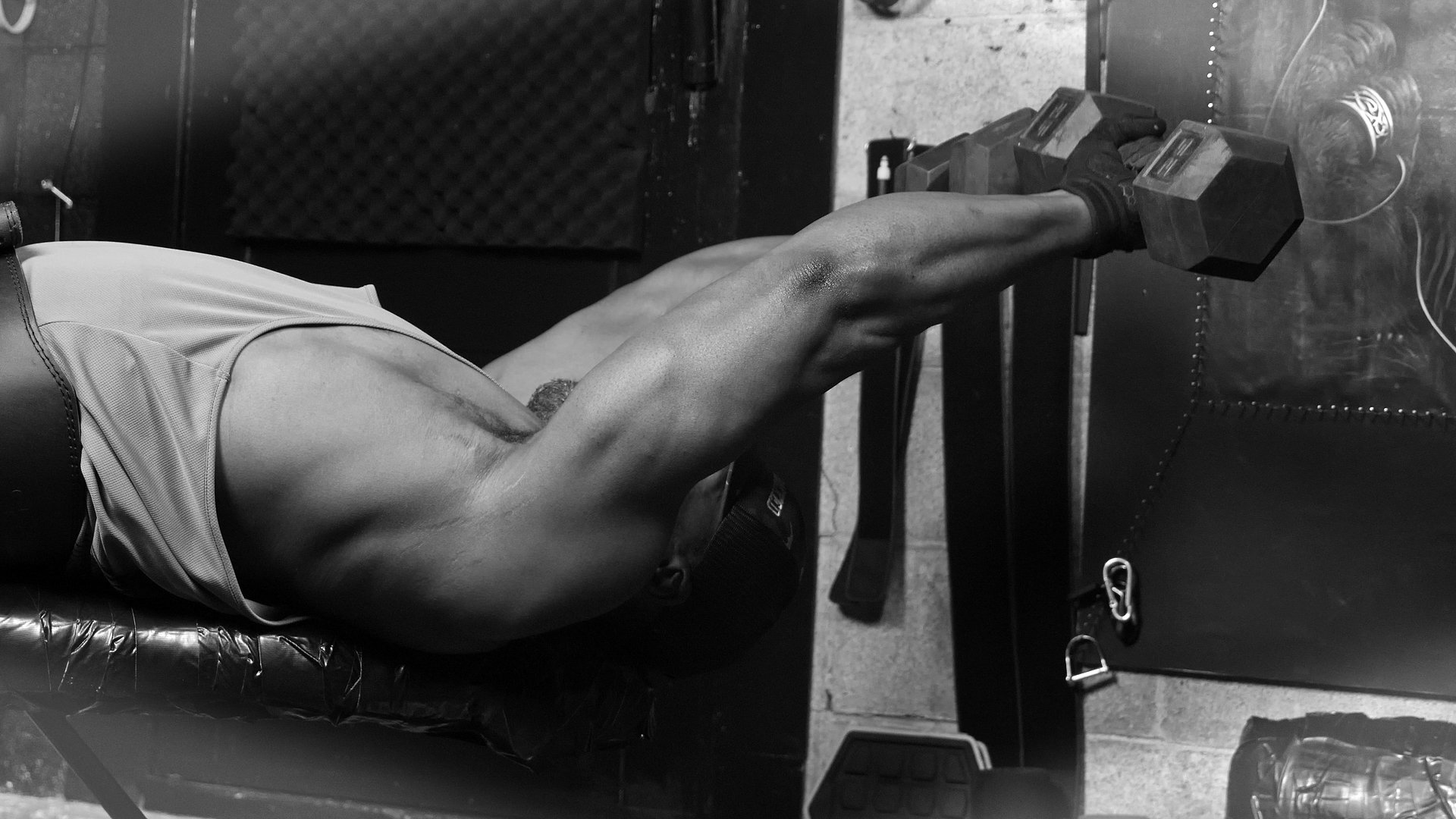 |
No doubt you’ve done your fair share of the standard dumbbell skull Crusher, and while that is a traffic exercise I thought I’d up the ante and add in a top-level variation capable of delivering the same horse-shoe-like kick to the Triceps.
Items Needed: Flat bench and a pair of dumbbells.
Cue 1: Lay back on a flat bench with dumbbells in a reverse grip behind the crown of your head with your Elbows in the air.
Cue 2: Bring the dumbbells out and up as appose to up and over your head. As they reach the dumbbells reach the top of the movement, twist them so that your palms are facing away from you. To limit momentum, try not to swing the bells up your elbows out to the side or swing the bells during the movement, which can incorporate momentum.
This Pump-Inducing Tricep Workout With Dumbbells Is Waiting For You!
Dumbbell Bicep Workout Dumbbell Hamstring Workout
Dumbbell Chest Workout
Dumbbell Quad Workout
Home Dumbbell Tricep
Workout Exercise 2:
The Incline Tricep Kickout:
From the outset, the Dumbbell Incline Kickout looks like a cross between the Seated Dumbbell Tricep Extension and the Close Grip Bench Press, and while it isn’t the most popular exercise to place inside a home dumbbell Tricep workout, it’s certainly a movement that will quickly become a favorite for targeting all three Tricep heads, especially the medial Tricep head while delivering an incredible pump.
Items Needed: Incline bench and a pair of dumbbells.
Cue 1: Use an incline bench set up at about a 60-degree angle. Set Elbows so that they flare out to the side with dumbbells lightly resting on the upper Chest.
Cue 2: Slowly extend the dumbbells to the top of the movement and turn your thumbs up to place a little extra stress on the Triceps.
Q: Tricep Press Down vs The Tricep Push Down - Are They The Same?
Click Here To Find Out!
Home Dumbbell Tricep
Workout Exercise 3:
The Face Scrape
While this isn’t what I would call a meat and potatoes movement for the Triceps, nevertheless it’s a great movement for learning how to lengthen the Long Tricep head through different loads. While more techniquecal than other movements, once you learn the different cues, you’ll be off and running with another brilliant exercise for the Triceps.
Items Needed: Flat bench and a pair of dumbbells.
Cue 1: Lay flat on a bench with a palm-up grip and weights resting to each side of your chin. In this position, the Triceps are already loaded.
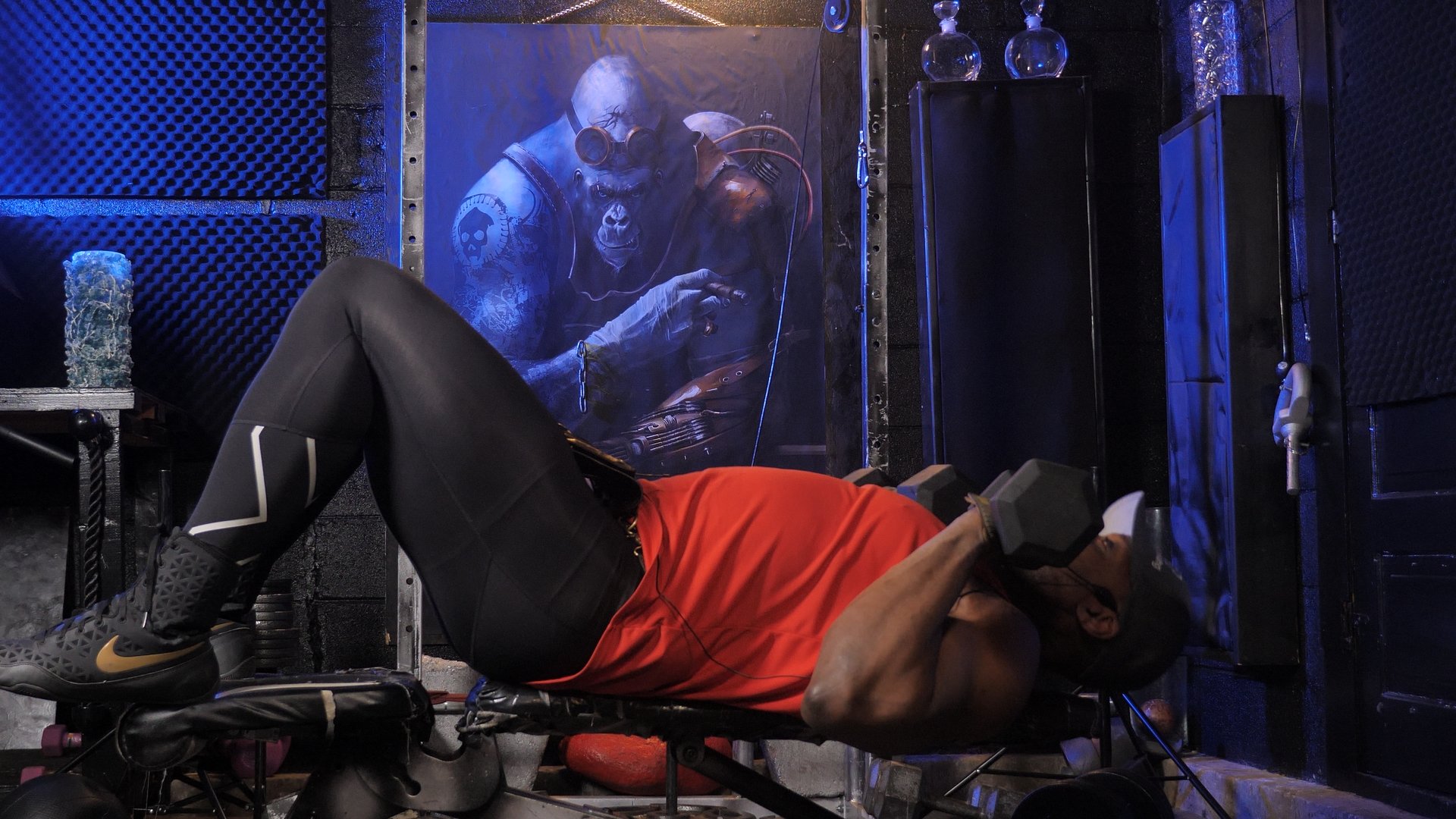
Cue 2: Slowly press the dumbbells out instead of up, making sure to keep the forearm parallel to the ground. Once you're in full extension, tense your Triceps hard and hold for a brief second.
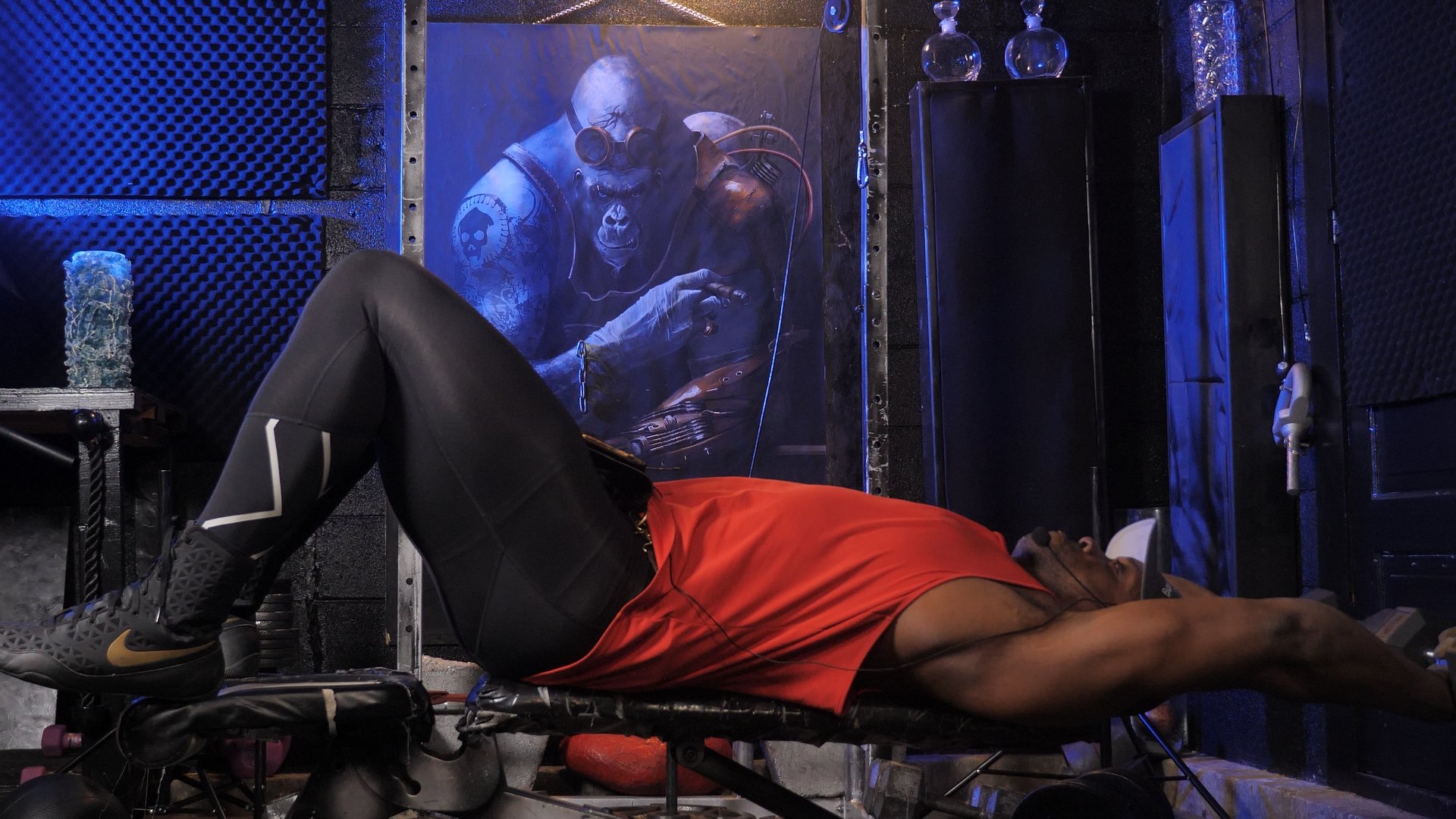
Cue 3: Now, bend the elbow and slowly drop the dumbbells below head height. At this stage, pause in this fully lengthened position and briefly tense.
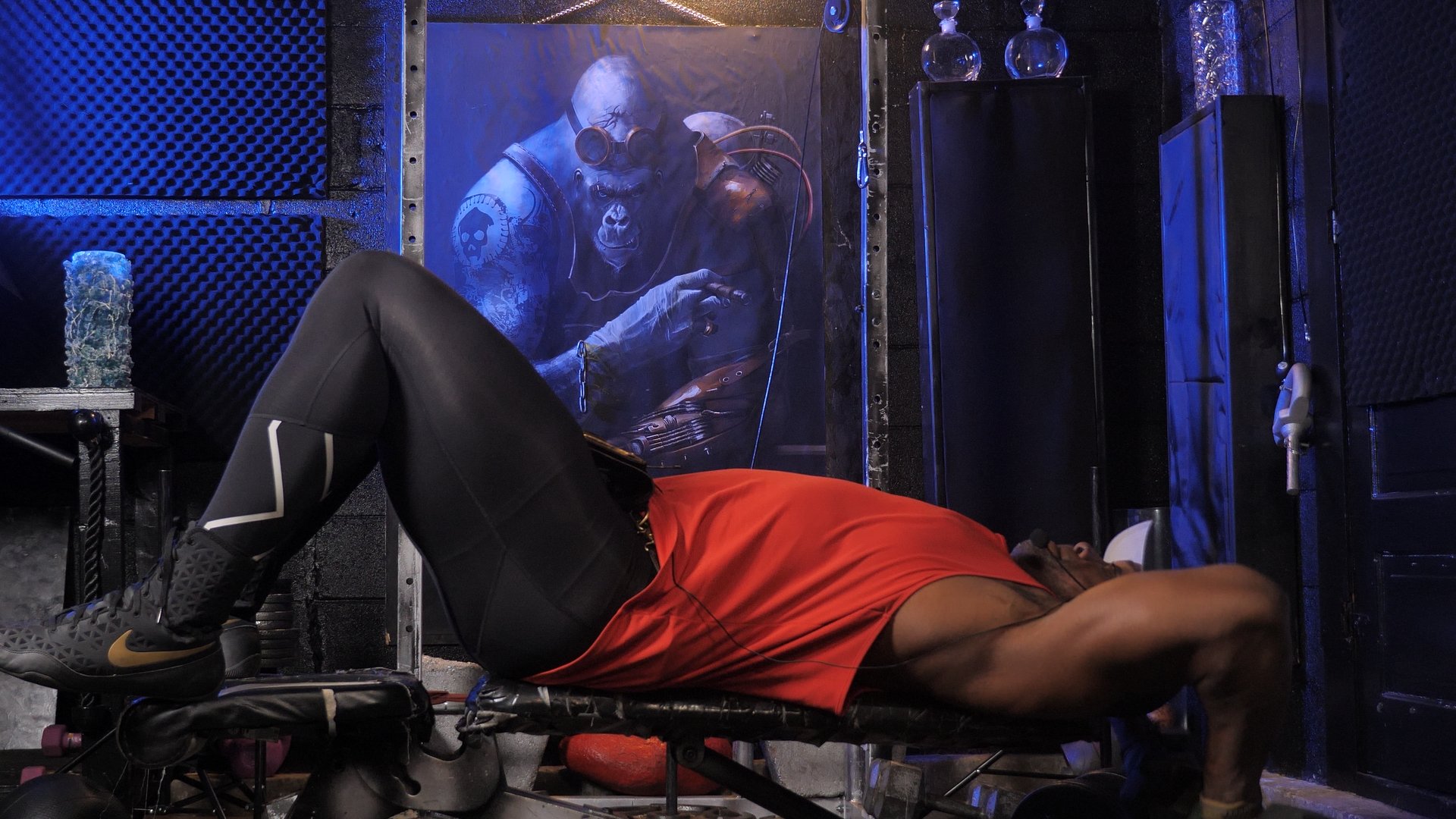
Cue 4: You’re now going to play this movement back in reverse, making sure to hold and squeeze when the dumbbells are in full extension and when they return to the side of your chin.
Home Dumbbell Tricep
Workout Exercise 4:
Kneeling Dumbbell Kickbacks
Many will tell you that any type of Kickback exercise is a pure waste of time, but I’m here to say quite the opposite. If you look where the origination point of the long Tricep head is located, you’ll notice that it starts at the Infraglenoid Tubercle of the Scapula, aka – the back of the shoulder.
Because it originates from the back of the shoulder, a simple extension of the Elbow does not provide you a full contraction of the long head of the Triceps.
To get full contraction of the long head, you have to bring the insertion
point on the forearm closer to the origination point. The best way to do this
is by bringing your arm behind the line of your body. Now we know this, let's
kick back like a bucking horse and grow that long head.
Items Needed: Upright bench.
Cue 1: Kneel on an upright bench with your torso resting on the back. Start with your Elbow bent and tucked into your side with the dumbbells in the curl position in front of you.
Cue 2: Extend your elbows so that the dumbbells travel behind you. At the very top of the movement briefly tense your Triceps before returning the dumbbells to the start position.
Can You Handle The Ultimate Dumbbell Tricep Workout?
What Training
Protocol Can We Use For
Our Home Dumbbell Tricep Workout?
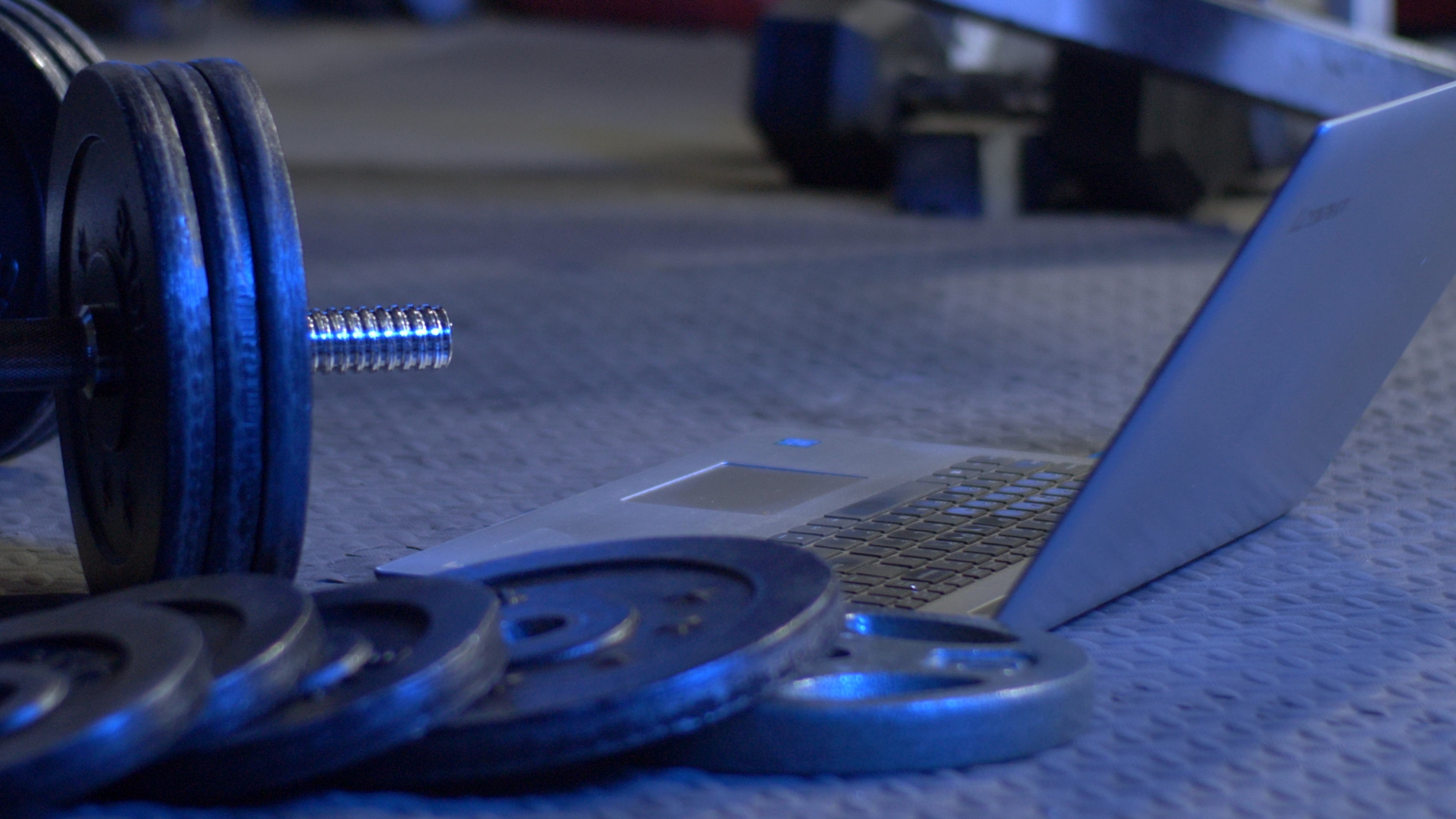
OK, we could just complete repetitions until we're tired and hopefully, something good will happen to the Triceps; but let’s become a little more organized and focused on our performance so we can get the best out of every workout.
We’re going to use the very easy and efficient “auto-regulation” training protocol. If you’re new to auto-regulation training, stick with me because this is an extremely effective way of building muscle while managing fatigue.
When you use auto-regulation training, your fatigue is being managed on your performance within a given set.
This means that sometimes you lift more and sometimes less weight for the same amount of reps per set and reps in reserve because naturally, you'll push yourself when you're in an optimal state to perform and when you're not, you pull back.
One important note to make about autoregulation training is that this protocol uses Reps in Reserve as a tool to measure the intensity of effort. If you're new to reps in reserve, don't worry, you'll soon get the hang of this convenient way of tracking workout intensity and measuring how hard a set feels and how many more repetitions you could have achieved to failure.
In addition, this protocol has variables you can control, which help to develop the skill of rating your workout performance set by set. For example, to help you discover your exertion level you’re asked to perform 10 repetitions per set, aiming to leave no more than 2 reps in reserve, which will ensure you are achieving maximum motor unit recruitment.
To get a better idea of using this protocol in your next home dumbbell Tricep workout, after the first set of 10 reps has been completed, you'll assess your performance with the specified 2 reps in reserve in mind. You do this by asking yourself a simple 'yes' or 'no' question after each set: "Am I above or below the Reps in Reserve target?"
If you undershoot your reps in reserve target, for example, you have 3 or more reps in the tank after set one; you will add weight to set two. If you overshoot the reps in reserve target where you have 1 or fewer reps in reserve, you will remove weight for set two. You repeat this same process after each set is completed.
If, after careful consideration, you assess your performance as the same reps in reserve prescribed, i.e., you're not higher or lower than the 2 reps in reserve, then you keep the same load for the following set and ask yourself the same question again after completing the next set.
This way of training will help you continuously assess your performance with a "reps in reserve" benchmark in mind. At first, you may have difficulties rating your reps in reserve as a standalone measurement of performance, but because there's a rep-per-set yardstick given, you only need to assess whether you're higher or lower than the reps in reserve target.
The major advantage of this protocol is that it teaches you how to become an efficient self-coach. It's advised that you make a note of every working set so, over the four-week cycle, you can follow your progress and make the necessary adjustments.
As the weeks move on, what you thought were two repetitions in reserve on week one may eventually feel more like three or four reps in reserve by week four. That is why it is always advised that you log every set in a workout logbook so you can follow your progress; that goes for all muscle groups.
In the above scenario, it doesn't matter if you're always above or below the reps in reserve benchmark; the key is to measure your performance set-by-set and be in a position to adjust the weight accordingly.
Choosing Urethane and Rubber Dumbbells For Your Home Gym
Home Tricep Workout With Dumbbells – The Breakdown:
So that you can measure home dumbbell Tricep workout results by way of performance and gains, I advise that you work in a four-week training cycle, meaning that you train hard over four weeks, and on the fifth week you pull back and take a Deload week to relieve fatigue and give your Tendons and Ligaments time to catch up and heal.
As for sets per exercise, a lot will depend, training level, recovery ability, and overall fatigue accumulation. 3-4 sets per exercise make a great start, but monitor how you feel and how well you recover from workout to workout.
As for repetitions per set, you can work with anything from 6 repetitions to 20 repetitions per set. If you train Triceps multiple times per week, change repetitions per set from workout to workout.
Home Dumbbell Tricep Workout Intensity Technique
Of course, there are a few good intensity Techniques you could employ during your home dumbbell Tricep workout, like supersets, forced sets, and drop sets to allow you to go beyond the common failure point in a workout to push the muscle harder.
Rep Targeting:
For this muscle-building technique, you simply choose one of the movements from your home dumbbell Tricep workout, set a rep target, and obtain that repetition goal no matter how many sets it takes to achieve. For this example…
• Our target is 50 repetitions with a weight that may allow 15 reps to failure. Say on set one, you achieved 15 reps.
• Rest up to 30 seconds
• You perform 10 more reps to failure
• Rest up to 30 seconds
• Achieve 8 reps to failure
• Rest up to 30 seconds
• Complete 7 reps to failure
• Rest up 30 seconds
• Perform 5 repetitions to failure
• Rest 30 seconds
• Perform 5 reps to failure
• Complete!
Or on your next home Dumbbell Tricep workout you could try -
The Time Subtraction Rep Targeting.
A significant variation of the above rep targeting method is to do "Time Subtraction Rep Targeting." Your rest time between sets is the number of reps you have left to reach your target.
Here’s an example using a target of 50 reps with a weight that allows you about 15 repetitions to failure.
• You complete 15 reps on set one to failure
• Rest 35 seconds
• Set 2 you complete 10 repetitions to failure
• Rest 25 seconds
• Set 3; you complete 8 reps to failure
• Rest 17 seconds
• Set 4 you perform 6 repetitions to failure
• Rest 11 seconds
• Set 5 you complete 5 reps to failure
• Rest 6 seconds
• Set 6 you perform 4 reps to failure
• Rest 2 seconds
• Set 7 you complete 2 reps
• Complete.
Now you’ve read this home Tricep workout with dumbbells article, don't just sit on the information because that won't do much to make your Triceps grow. Get in your home gym and give the above exercises a good going over and watch your results.
Click For a Mission Jacked Dumbbell Arm Workout
Choosing The Best Dumbbell Set With Rack 5 50 lb. Combo
More Physique Building Articles By Mission Jacked
Tricep Press Down vs The Tricep Push Down.
Are They The Same?
Who Wins When It Comes To Building Mass?
Check Out This Pump-Inducing Dumbbell Tricep Workout
A Home Bicep Workout With Dumbbells. Everything You Need To Grow
Incline Curls, The Baddest Sit-Down Exercise In All The Bicep Kingdom.
A Dumbbell Arm Workout To Rip The Sleeves Off Any Top Fast!
db Skull Crushers: Get Big Results With These 2 Variations!
The Cable Tricep Kickbacks Master Class For Unbelievable Arm Growth
Mission Jacked L.L.C
Address: 9407 NE Vancouver Mall Dr
STE 104 #1269
Vancouver, WA 98662 USA
Email: mission@missionjacked.com
